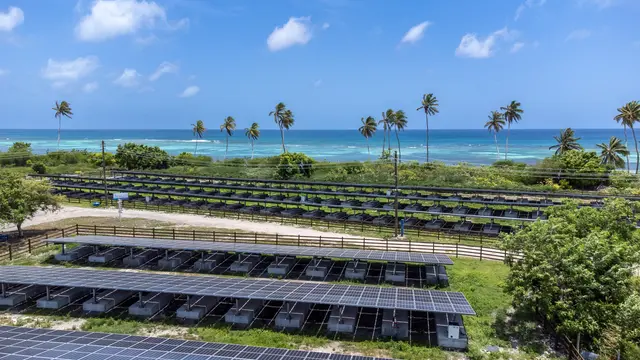Harnessing Microgrids as a Response to Natural Hazards in the Dominican Republic
Project by Polygence alum Carla

Project's result
Research Paper and Symposium Presentation of Rising Scholars
They started it from zero. Are you ready to level up with us?
Summary
Throughout history, the Dominican Republic has been affected by natural disasters due to its geographical location and the lack of critical and resilient infrastructure for the island, coupled with landslides. However, with the detrimental effects of climate change, the island's constant exposure to hurricanes, earthquakes, floodings, and extreme temperatures has increased its vulnerability. As a result of these environmental hazards, the country has experienced a substantial degree of damage, reflected in human losses, destruction of commercial and residential facilities, and exorbitant economic deficits. Considering the present support from the Dominican government to encourage the development of renewable energy as a tool to respond to climate-related risks, as well as the large number of renewable energy projects by public and private entities that are already providing energy to Dominican citizens, this paper conducts an analysis to demonstrate the benefits of microgrids in the Dominican Republic as a mitigation mapping tool designed to reduce the impact of future disasters. Additionally, the report will present the elements needed for the integration of this project, as well as the areas of improvement currently lacking for any present implementation of an energy emergency mapping platform for the Dominican Republic. This report will also support future studies exploring solutions associated with the Dominican energy sector's resilience against extreme weather events.
Keywords: Disaster risk management, microgrid, nano grid, Energy Access Explorer (EAE), World Research Institute (WRI), Comisión Nacional de Energía (CNE), Plan Energetico Nacional (PEN), Sistema Único de Beneficiarios (SIUBEN), United Nations Development Program (UNDP), Oficina Nacional de Estadística (ONE).

Anne-Laure
Polygence mentor
PhD Doctor of Philosophy candidate
Subjects
Engineering
Expertise
energy, renewable energy, infrastructure, energy policy, sustainability, GIS, Life cycle assessment ( carbon counting), machine learning, sustainable buildings, 3D printing for construction, risk assessment
Check out their profile

Carla
Student
Hello! My name is Carla Carvajal. I am from Santo Domingo, Dominican Republic. My project is about demonstrating the advantages of building microgrids in the Dominican Republic to respond effectively to the increasing number of natural disasters affecting the island. This is a project that is very close to my heart as it was born from a personal experience and from my desire of helping my country. I hope you enjoy my paper and learn something new about my lovely country.
Graduation Year
2023
Project review
“My research project was both a learning and challenging experience. It showed me the art of connecting with people who are experts in the field. I am thrilled to have met an engineer from my country who is leading the path of transforming the island's energy sector. I learned how important is to choose the exact words and include as much detail as possible when writing a research paper. After this experience, my research interest blossomed, and I can't wait to be part of the individuals who are changing the world with their research.”
About my mentor
“I had the opportunity to have a wonderful mentor, Anne-Laure, with whom I share similar interests, including medicine and engineering. She created a spark in me that helped me visualise things from a different perspective. She is someone I enjoyed talking with and whom I admire for the passion she reflects in everything she does. She was always chasing her dreams and showed me the power of learning. She is a very caring person who was always willing to answer my questions and helped me learn about the environmental aspect of engineering. I appreciate her a lot, and I wish her the best in all her endeavours.”
Check out their profile